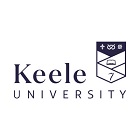- News and articles
- Find usIDP AustraliaIDP BahrainIDP BangladeshIDP CambodiaIDP CanadaIDP ChinaIDP EgyptIDP GhanaIDP Hong KongIDP IndiaIDP IndonesiaIDP IranIDP JordanIDP KenyaIDP KoreaIDP KuwaitIDP LebanonIDP MalaysiaIDP MauritiusIDP Middle EastIDP NepalIDP New ZealandIDP NigeriaIDP OmanIDP PakistanIDP PhilippinesIDP Saudi ArabiaIDP SingaporeIDP Sri LankaIDP Taiwan, ChinaIDP ThailandIDP TurkeyIDP UAEIDP VietnamIDP Corporate
- Social
- English
- Where we operate
- Courses
- Scholarships
- IELTS
- About IDP
- Student Essentials
- News and articles
- Find us
- Find us
- Find nearest IDP offices
- IDP Australia
- IDP Bahrain
- IDP Bangladesh
- IDP Cambodia
- IDP Canada
- IDP China
- IDP Egypt
- IDP Ghana
- IDP Hong Kong
- IDP India
- IDP Indonesia
- IDP Iran
- IDP Jordan
- IDP Kenya
- IDP Korea
- IDP Kuwait
- IDP Lebanon
- IDP Malaysia
- IDP Mauritius
- IDP Middle East
- IDP Nepal
- IDP New Zealand
- IDP Nigeria
- IDP Oman
- IDP Pakistan
- IDP Philippines
- IDP Saudi Arabia
- IDP Singapore
- IDP Sri Lanka
- IDP Taiwan, China
- IDP Thailand
- IDP Turkey
- IDP UAE
- IDP Vietnam
- IDP Corporate
- Social
- Language Switcher
- IDP Education /
- Colleges and Universities /
- United Kingdom /
- Keele University /
- MSc International Diplomacy


Location
United Kingdom
Qualification
Masters Degree (Taught)
Fees
GBP19500
(2025)
Duration
1 Year(s)
Next intake
22 September 2025
Entry Score
6.5
IELTSCourse info
As the global concerns in our modern world continue to evolve, with pressing security issues, migration, climate change, Covid-19 and more, so too must the strategies, tactics and people involved in decision making.
This course recognises the fast-changing nature of our interconnected world, and the transformed international political relations between states, organisations, and citizens. Drawing on cutting-edge theories of diplomacy and examples of real-world contemporary practice, it explores the evolving field of diplomatic relations.
You will study the theories, practice, and evolution of diplomacy in international settings, and learn how diplomacy works, when, where and how it occurs, and what diplomacy means to different audiences and in different contexts. This will equip you with the analytical tools to understand our changing world and the expertise to contribute to the development of the forces and decisions that shape it.
You will take three core modules. These explore the key ideas and concepts of international diplomacy and the evolution of the field of diplomatic studies, the central philosophies and approaches to the study of Diplomacy and International Relations, and the ways in which research in this field is designed and conducted.
You will then select five optional modules, and you can tailor your studies as you wish, choosing modules that interest you most. You might, for instance, prefer modules that explore the working of the international political system and the development of organisations within it, or you might like to study types of conflict resolution and diplomacy or processes of post-conflict development. Likewise, you might wish to select modules that explore themes from a theoretical perspective, or you might prefer to choose modules that engage in empirical research. Whichever modules you choose, you will be taught by academic staff who are experts and have long-standing reputations within their fields.
You will then be able to further pursue your particular interest in International Diplomacy in your dissertation when you will examine a topic of your own choosing in considerable depth.
- Scholarships View all scholarships
- Internships
Entry requirements for Keele University
IELTS - 6.5 with 5.5 in all components
TOEFL ibt - 87 with 17 (writing), 17 (listening), 18 (reading) and 20 (speaking)
Application Deadline
The application deadline isn't available Speak to an IDP counsellor for more detailed information
Further information
If you aren't eligible for the above entry requirements, you might ant to explore pathway options at Keele University. If you want to find out more, speak to our counsellors.
THE World Ranking
501st / 1250
THE World Ranking65th / 130
Complete University guideWhat our students think
We’ve haven’t received any reviews for this institution yet.
Recommended for you
- Masters Degree (Taught)
- London , United Kingdom
- Next intake:09/2025
- THE World Ranking:601
- Masters Degree (Taught)
- Aberystwyth , United Kingdom
- Next intake:09/2025
- Entry Score: IELTS 7.0
- GBP17905 (2025)
- THE World Ranking:601
- Masters Degree (Taught)
- Brighton , United Kingdom
- Next intake:09/2025
- Entry Score: IELTS 7.0
- GBP14900 (2025)
- Masters Degree (Taught)
- Next intake:10/2025
- Entry Score: IELTS 6.5
- GBP12500 (2025)
- THE World Ranking:601
- Masters Degree (Taught)
- Lincoln , United Kingdom
- Next intake:09/2025
- Entry Score: IELTS 6.0
- GBP17600 (2025)
- THE World Ranking:301
- Masters Degree (Taught)
- London , United Kingdom
- Next intake:09/2025
- Entry Score: IELTS 7.0
- GBP21150 (2025)
- THE World Ranking:301
- Masters Degree (Research)
- London , United Kingdom
- Next intake:09/2025
- Entry Score: IELTS 6.5
- GBP19830 (2025)
- THE World Ranking:301
- Graduate Diploma
- London , United Kingdom
- Next intake:09/2025
- Entry Score: IELTS 6.5
- GBP13220 (2025)
Your action plan
Step 1
Shortlist your courses
Choose the best three courses you’re most likely to pursue.
Step 2
Check your eligibility
Get an instant in-principle offer for courses with the IDP FastLane tag.
Step 3
Apply through IDP Live
Fill out the form once and use it to apply to multiple courses.
How does IDP FastLane work?
With the FastLane 'Offer in Principle', you'll know in minutes if you'll be accepted!
Select an institution and course
Create your academic profile
Submit your application for an 'Offer in Principle'
Your chosen institution(s) will send you a decision in minutes!
Get ready to apply with an expert counsellor




